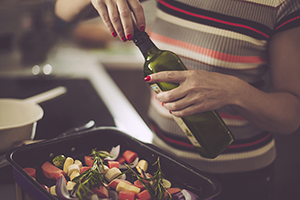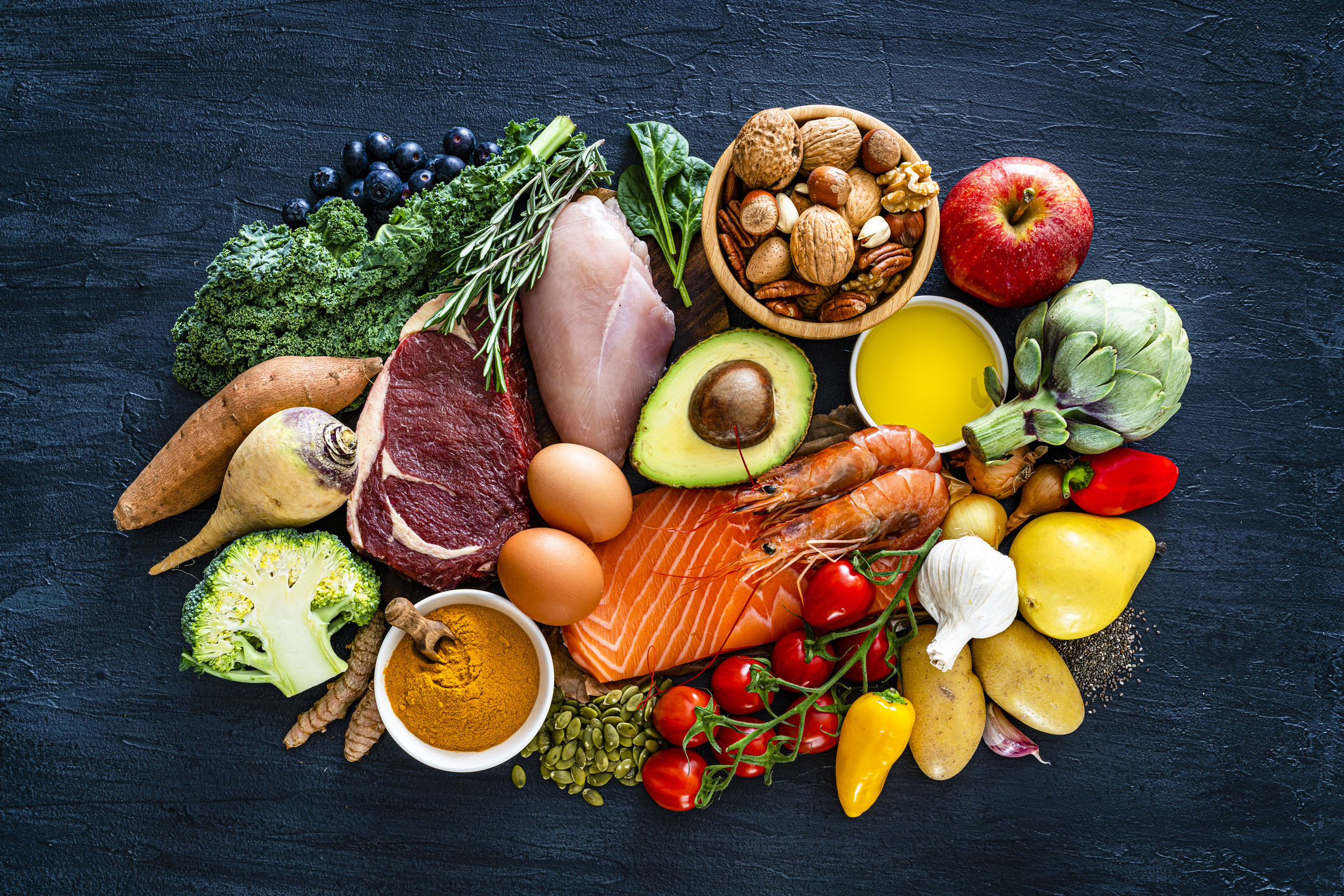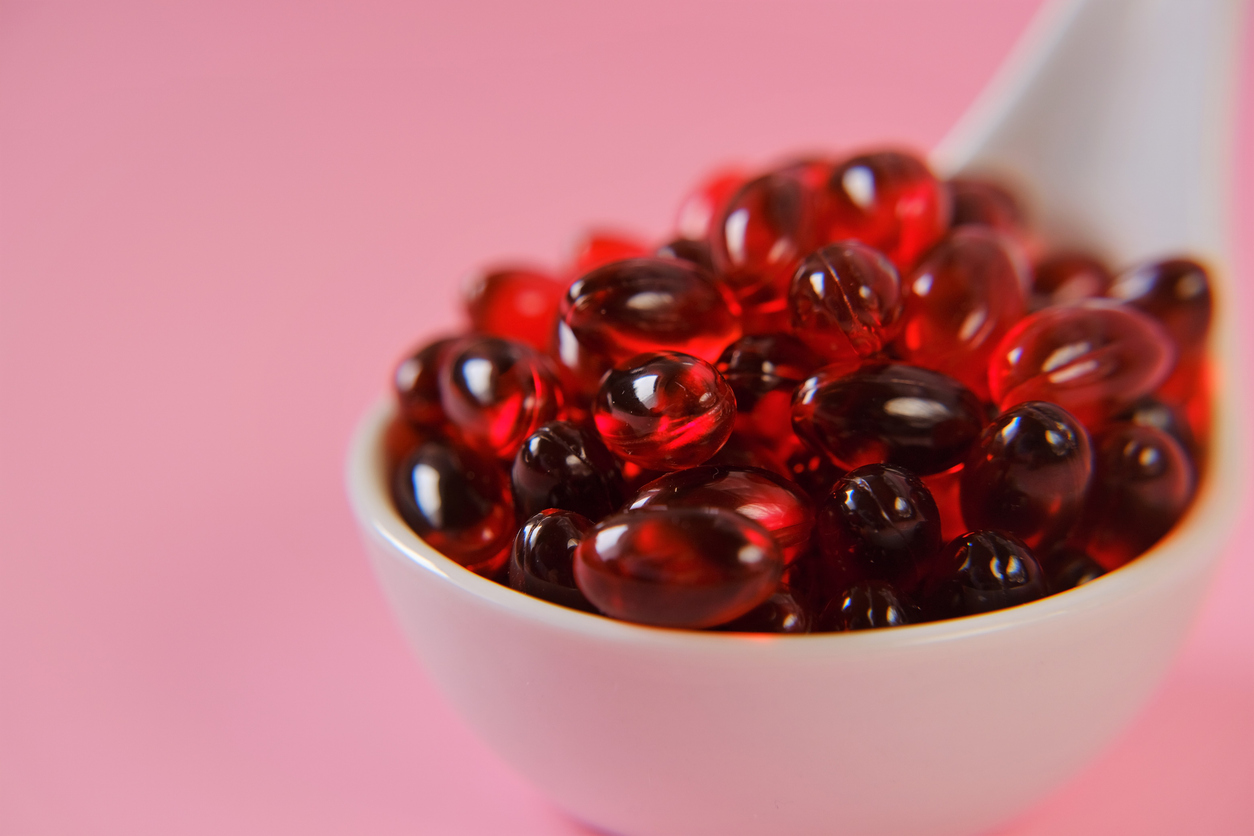Q: I often see recipes using extra virgin olive oil with oven temperatures of 400 degrees Fahrenheit. Doesn’t that produce harmful free radicals?
What cooking oils do you recommend when cooking or baking at high temperatures?
A: Vegetable oils that have a high smoke point, like grapeseed oil, are often recommended by chefs for high heat cooking. Unfortunately, many vegetable oils are volatile under high heat due to their molecular structure. This volatility causes them to be vulnerable to oxidation, therefore unhealthy for consumption. These vegetable oils include corn, canola, sunflower, safflower, soybean, and peanut oils, among others.
Olive oil has only one “bend” in its molecular structure making it somewhat less volatile under high-heat cooking than other vegetable oils which have more double bonds creating bends in a couple of places. Olive oil also contains beneficial tocopherols and polyphenols which can protect it from oxidation while cooking. Unrefined avocado oil may be runner-up in this regard.
The best most stable fats for high-heat cooking are saturated fats. Their linear molecular structure—due to no double bonds—permits them to be stable under high-heat cooking. Coconut and palm oils, lard and beef tallow, chicken and duck fat, and butter or ghee are the most stable fats for cooking, oven or stovetop.
I’ll leave you with this quote from the late consummate expert on fats on the dangers of polyunsaturated fats:
“When they are subjected to heat or oxygen, as in extraction, processing, and cooking, free radicals are formed. It is these free radicals, not saturated fats, that can initiate cancer and heart disease. As such, industrially processed polyunsaturated oils, such as corn, safflower, soy, and sunflower oils, should be strictly avoided.” —Mary Enig, PhD
To your health!







